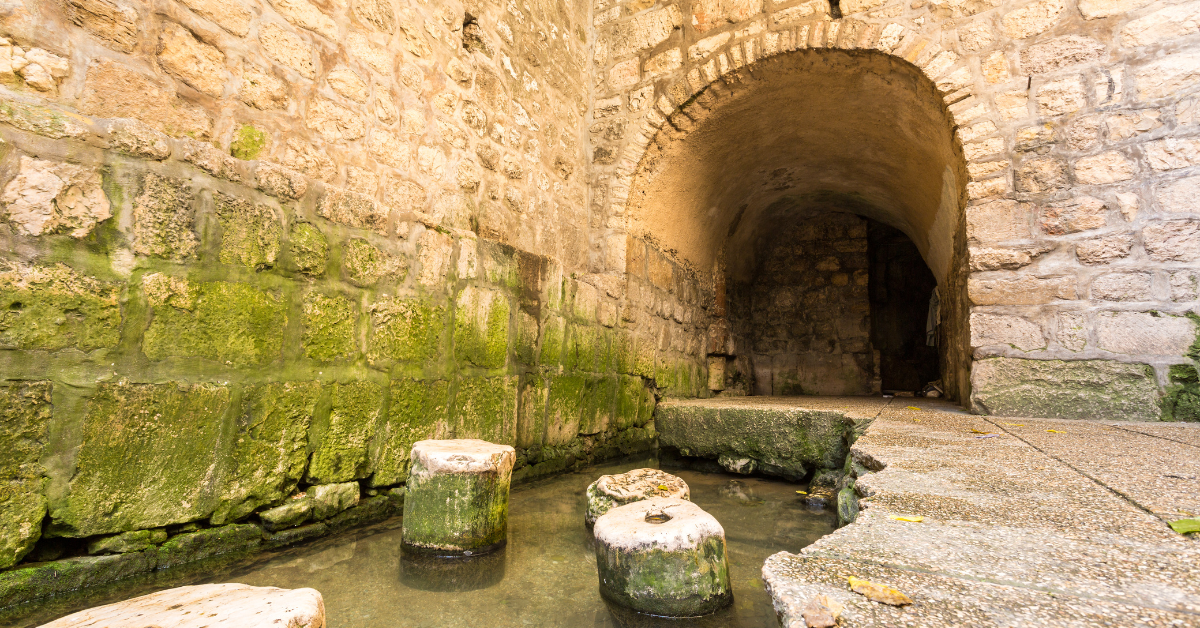Learning From the Pharisees
Why this is a marvelous thing, that you do not know where He is from; yet He has opened my eyes! (John 9:30).
The Pharisees were in willful disbelief. A man, well known to the community, had been cured of a lifetime of blindness. His neighbors and many others were used to the sight of this man begging, and now, here he was, able to see. This created a stir in the community. People were talking about this miracle, and eventually, news reached the Pharisees. They were left confused for the miracle had happened on the Sabbath. This created division among the Pharisees, with some claiming the healer was a sinner to have healed on the Sabbath, but others wondered how then a sinner could perform a miracle.
So, they began a series of questions. First, they brought in the man who had been healed. After questioning him, they did not believe that he had even been blind. Next, they brought in his parents, who confirmed their son’s former condition, but being intimidated by the leaders, they would not say how their son had been healed. Still unsatisfied, the Phasirisees lastly called the healed man before them. John 9:24-34 records this final exchange. It reads as a tense conversation. The Pharisees sought to discredit both the man and his healer, calling them both sinners. The blind man, as the words quoted above note, proclaimed his wonder at how the Pharisees could claim that anyone other than a man sent by God could have performed such a miracle.
As a reader of this passage, it is easy to share the healed man’s marvel at the Pharisees’ reaction. This man had been born blind. The Pharisees had confirmed this through questioning his parents. There were witnesses to the miracle they had likely heard from. The evidence was so clear that the Pharisees didn’t even deny that it had happened. They gave God the glory for a miracle (verse 24), but denied that Jesus, a sinner in their mind, had anything to do with it.
This happens regularly in the gospels with the Pharisees. From the moment they go out to the wilderness to see John the Baptist, they are in conflict with the message of Christ. As Christ’s notoriety expands throughout the region, their opposition crescendos to the point where they deliver Him to Pilate to be crucified. They do this despite the mounting evidence that Christ was not only sent by God but also is the Son of God.
Given their actions, it is easy for us to react to each passage. They appear in the same way the healed man did standing before the Pharisees as they denied his healer was from God: marveling, confused, and, at times, even disgusted.
Those are appropriate reactions. In some ways, the Pharisees represent the worst of men: they conspired, they manipulated, and they killed an innocent man — the Son of God, attested to them by signs, miracles, and wonders — to protect their position among the people. Disgust is warranted.
But the story of the Pharisees within the life of Christ is not there for their condemnation. It is not there so people can look back at them with shamefully shaking heads and wagging fingers. Like all scripture, it is, in part, there for learning. Among other things, the Pharisees are character studies that reveal sins prevalent in all men. It shows Christians what they may face in the world, and it also reveals struggles that they themselves may have. In that way, everyone must be willing to see themselves in the Pharisees. An unwillingness to do so is to deny that they, themselves, could be them. This was a mistake the Pharisees had made, as Christ pointed out to them in Matthew 23:29-30,
Woe to you, scribes and Pharisees! Because you build the tombs of the prophets and adorn the monuments of the righteous, and say, “If we had lived in the days of our fathers, we would not have been partakers with them in the blood of the prophets.”
Christ goes on in the following verses to point out that the Pharisees were exactly what they were condemning. By persecuting Christ and, subsequently, His disciples, they were the very men they claimed they would never be. The men they claimed they never could be. The same mistake can be made today by focusing on the Pharisees’ faults — their sins, their blindness, and their guilt — while never considering how we may share in some of those faults or giving credence to the idea that maybe we are not so far from them.
This is hard to do in part because the Pharisees’ actions were truly heinous, so heinous that no Christian wants to see themselves in them. But at the base of their actions are sins common to all men: pride, envy, jealousy, self-interest, wanting to look good in the eyes of others, prejudice, and an unwillingness to listen. While the Pharisees may have had those sins embedded in their hearts at exceptional depth, there is nothing exceptional about those sins. Honest self-reflection by anyone would likely reveal the same or similar sins. Broadening our view of the Pharisees beyond their guilt and considering in what ways we may be like them may reveal sins within ourselves or blindness in our hearts, bringing us closer to our Lord.

